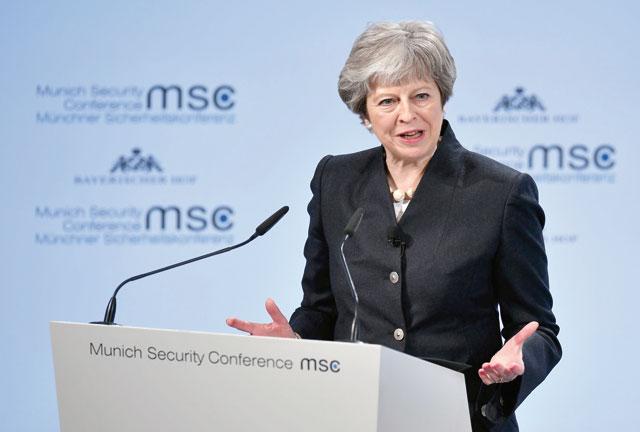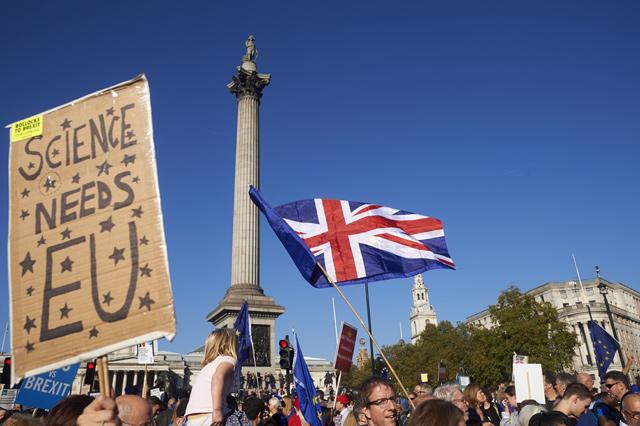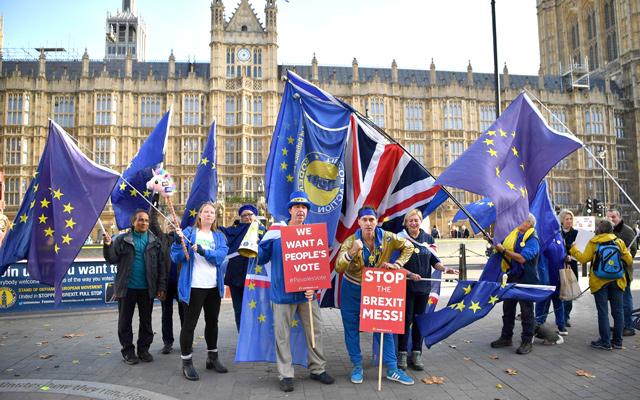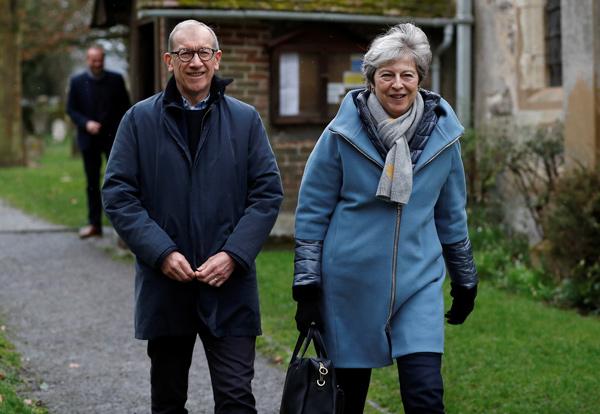You are here
Britain's May wins backing for EU security pact, timing unclear
By Thomson Reuters Foundation - Feb 17,2018 - Last updated at Feb 17,2018

British Prime Minister Theresa May gives a speech during the Munich Security Conference in Munich, southern Germany, on Saturday (AFP photo)
MUNICH — Prime Minister Theresa May made her case on Saturday for a new security treaty with the EU from next year, winning support from EU and US officials, who agreed the issue was too important to risk getting subsumed in broader Brexit negotiations.
In a speech to Western leaders and officials in Munich, May promised that London would continue to lead military missions and share intelligence if Brussels agreed to a pact "effective from 2019", the year Britain is due to leave the bloc.
May's government is using a series of speeches to set out its vision for Britain outside the European Union. But the loudest applause during her appearance came when one diplomat asked her to keep Britain in the bloc, reflecting Europe's broad dislike of Brexit.
"We are leaving the EU and there is no question of a second referendum or going back and I think that's important," May told the Munich Security Conference.
"The partnership that we need to create is one that offers UK and EU way to combine our efforts to greatest effect where this is in our shared interest," May said of her security plan.
Jean-Claude Juncker, the EU's chief executive, welcomed the idea for what he called a "security alliance" with Britain, adding that the issue should be separated from the rest of the Brexit debate.
Britain, along with France, is Europe's biggest military power and leads two European Union military missions, while sending troops to Estonia under a NATO flag.
With a host of issues still unresolved and infighting over Brexit dividing May's government just over a year before Britain is due to leave, security is one of London's biggest bargaining chips as it seeks a new deal with Brussels.
Britain's interior minister last year told the EU it could "take our information with us" if it left the bloc without a deal on security, jeopardising its membership of agencies such as Europol.
May emphasised she was unconditionally committed to European security, warned against competition between Britain and the rest of Europe, and said that both sides should do "whatever is most practical and pragmatic in ensuring our collective security".
Juncker said security should not be conflated with "other questions relating to Brexit", also quashing any British hopes that a security treaty might be a way into a free-trade deal.
"I wouldn't like to put security policy considerations with trade policy considerations in one hat. I understand why some would like to do that, but we don't want to," he said.
All in good time
NATO Secretary General Jens Stoltenberg also welcomed close security cooperation between Britain and the EU after Brexit, while Stoltenberg's predecessor at the alliance, Anders Fogh Rasmussen told Reuters May's was a strong speech.
"I think that is what we should aim for, but any treaty is very time-consuming. The timeline is unrealistic," Rasmussen said.
A senior US official said: "We know the goal, but I don't know if this is the right vehicle."
One senior EU official in Munich said that May would need to submit a formal negotiating paper to detail her ideas and then allow EU and British negotiators to move forward.
But the EU official, who is involved in the Brexit negotiations, said May's proposal was essentially not new and could only come after Britain and the EU had agreed a divorce settlement.
"The European Union also wants a new, security arrangement with Britain, but it can't be done before we agree on other issues," the official said.
While the status of the Irish border and citizens rights were broadly settled in December, EU negotiators say they are now waiting for Britain to say what kind of future trade relationship it wants.
Agreement on that front would allow EU leaders to endorse the plan at a Brussels summit on March 22-23 and move on to a special transition arrangement ending in December 2020.
Related Articles
BRUSSELS — European Union negotiators are looking at ways to promise Britain a customs deal that could stretch Brussels' Brexit red lines bu
LONDON — British Prime Minister Theresa May defended her anguished draft divorce deal with the European Union on Wednesday before rowdy lawm
LONDON — Brexit-supporting lawmakers who voted down British Prime Minister Theresa May's European Union withdrawal deal in January have outl


















